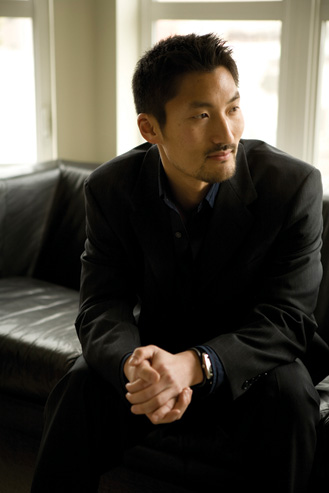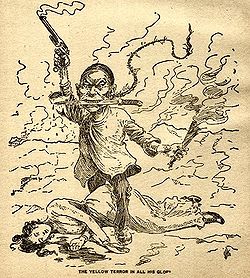By Suevon Lee
He may have been eating maggots and going shirtless on Survivor: Cook Islands back in 2006, but these days, Yul Kwon occupies a considerably more button-down role—as Deputy Chief of the Consumer and Governmental Affairs Bureau for the Federal Communications Commission in Washington, D.C.
While the Stanford alum and Yale Law grad is no stranger to Washington—he was once a legislative aide to Sen. Joseph Lieberman—his October 2009 appointment by FCC Chairman Julius Genachowski marks a major shift for someone who spent the last two years pretty much doing his own thing. Since winning Survivor, the Bay Area native has served as a CNN special correspondent, participated in charity work, hit the speaking circuit, brought Red Mango frozen yogurt to Northern California, and campaigned for Obama. Oh, and gotten married to his wife Sophie Tan..
Now at the FCC, Kwon, 34, leads efforts to educate the public about technology and communications policy, and is helping with the development of the National Broadband Plan, which aims to make high-speed Internet service more accessible to American households. He spoke to KoreAm Journal about his current reality.
Do people still recognize you as that guy who won Survivor?
People don’t seem to recognize me as much now that I’ve started wearing a suit again.
What about the Obama administration convinced you to sign on in your current role?
I know that the current [administration] is deeply committed to ensuring that minorities and other historically marginalized communities have the means and opportunity to let themselves be heard, both in terms of media representation as well as policymaking. Growing up as an ethnic minority, I know how profoundly overt and implicit messages in the media can influence the way you see yourself and the world around you. So one of the things I’d like to do is help minority communities find a voice both within the FCC and in the media landscape generally.
Have you ever thought about running for political office?
After I won Survivor, a lot of people encouraged me to run. I was flattered, but mostly shrugged it off. The prospect of being in the spotlight 24 hours a day on a grueling campaign sounded about as appealing as eating maggots again.
Anything happen that made you reconsider, even for a moment?
One day, I was speaking to a group of young Korean Americans about how our community needs more representation in American politics. Someone stood up and asked me why I didn’t run. As I fumbled around for an answer, I realized it was hypocritical for me to tell people to do something I wasn’t willing to do myself.
So why don’t you run?
I feel like my life has been so exposed over the last couple of years that I wanted to focus on my marriage, rather than taking on another high-profile project. On a practical level, I think it’s important for me to build a substantive record.
What type of advice would you give to young Asian Pacific Americans interested in public service?
We have a responsibility to embrace the opportunities that our parents worked so hard to give us. For us to truly break out of our role as the silent, invisible minority in this country, we have to become more politically engaged and active.







